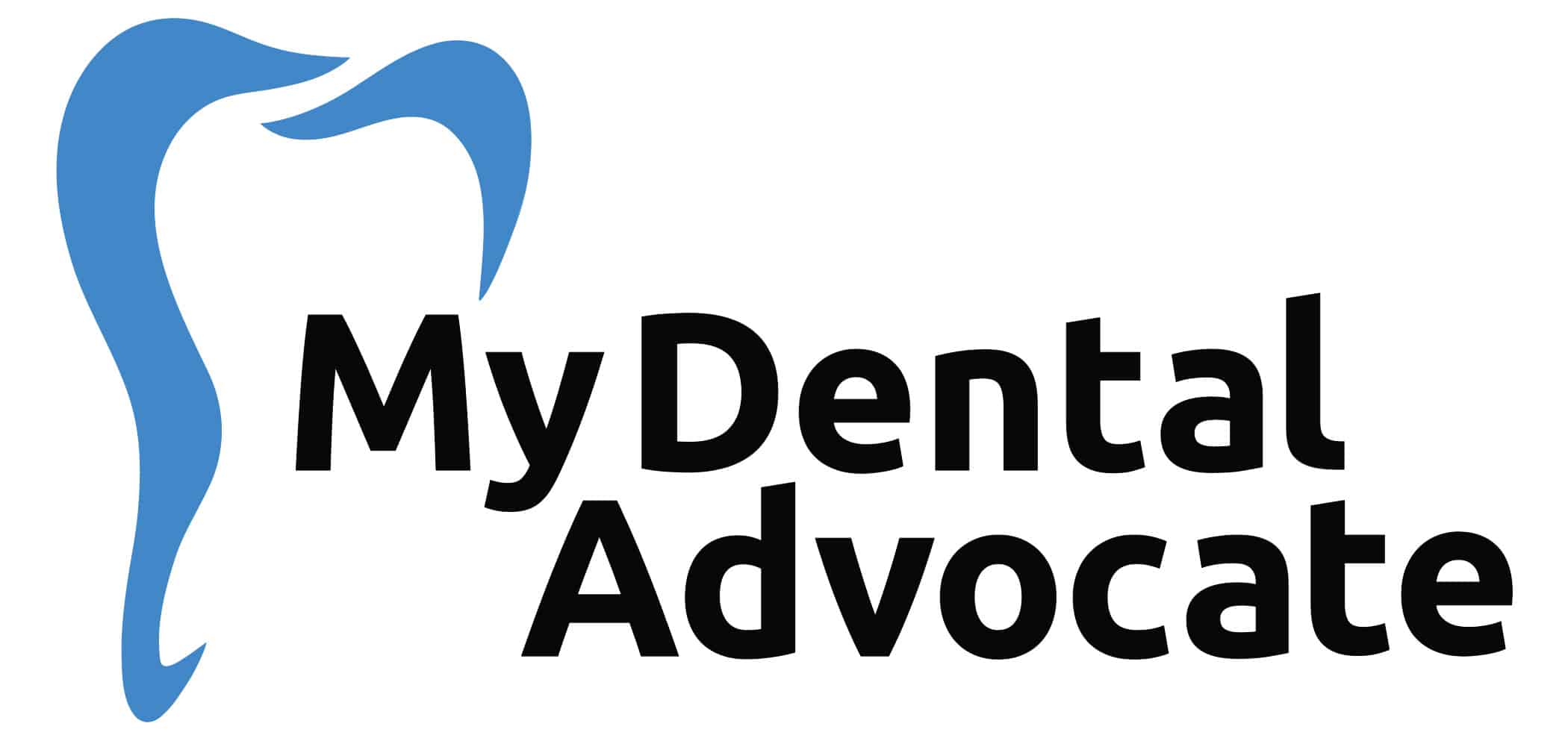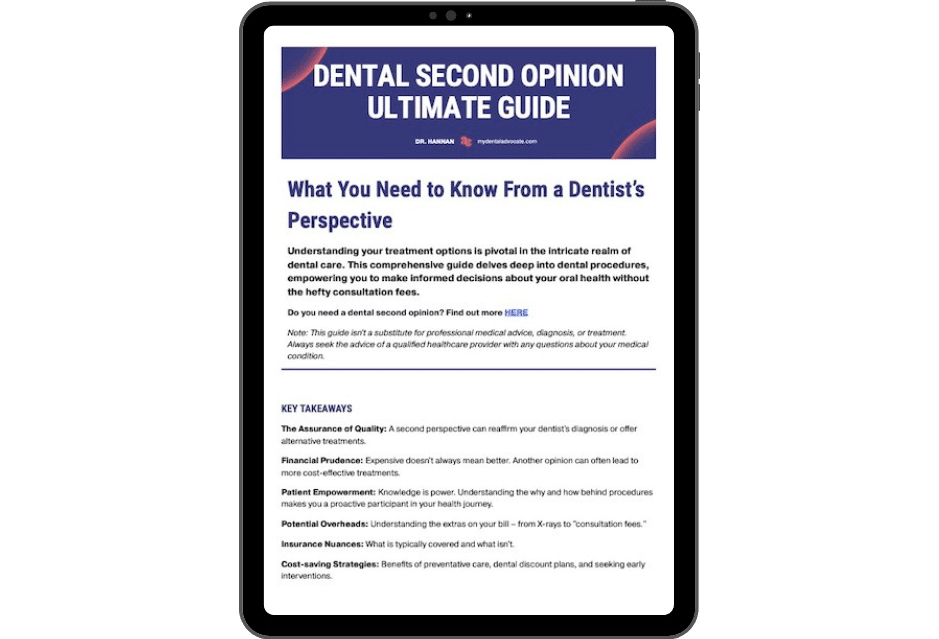Preventing Dental Misdiagnosis (Identifying Common Errors)
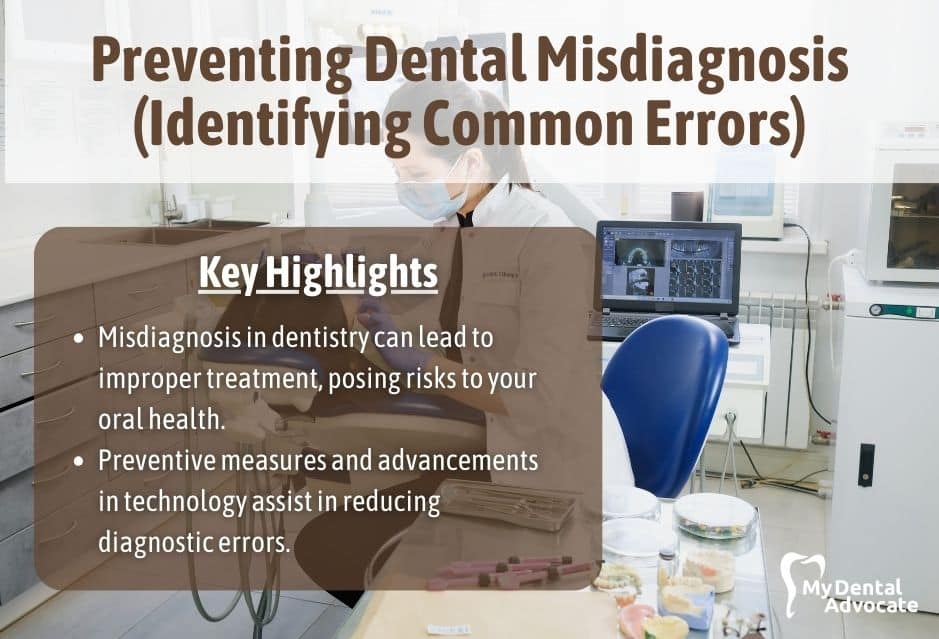
Dental misdiagnosis can significantly impact your oral health and overall well-being.
It occurs when a dental professional incorrectly identifies a dental condition or fails to diagnose a condition altogether.
This misstep can lead to inappropriate or delayed treatment, causing further complications or even the development of new issues.
Key Highlights
- Misdiagnosis in dentistry can lead to improper treatment, posing risks to your oral health.
- Preventive measures and advancements in technology assist in reducing diagnostic errors.
- Patient awareness and participation are crucial in avoiding potential dental misdiagnosis.
Related Posts
- Dental Second Opinion Ultimate Guide (Content Hub)
- Dental Crown Second Opinion (Potentially Save Thousands)
- Understanding Dental X-rays (Comprehensive Guide)
Understanding Dental Misdiagnosis
Regarding your dental health, an accurate diagnosis is key to receiving the right treatment. Understanding how and why dental misdiagnoses happen can help you make informed decisions about your care.
Need Dental Advice? Ask Dr. Hannan!
Definition & Significance
Dental misdiagnosis refers to an incorrect conclusion about your dental health condition made by a dental professional. This might mean an ailment is wrongly identified, or even missed entirely.
The significance of a proper diagnosis can’t be understated since it directly impacts your treatment path and overall dental health. Misdiagnoses can lead to unnecessary or delayed treatments, causing avoidable discomfort or lasting harm.
According to research, the largest type of harm reported was due to delayed and unnecessary treatment after a misdiagnosis.
Common Types of Dental Misdiagnosis
Dental misdiagnosis can manifest in various ways. Here are some common types:
- Misdiagnosis of Dental Decay: Not recognizing tooth decay or incorrectly identifying it can result in incorrect treatments.
- Misdiagnosis of Periodontal Disease: You might be told you have gum disease when you don’t, or vice versa, affecting the treatments you receive.
- Failure to Diagnose Oral Cancer: This can be particularly dangerous due to the seriousness of the condition.
Being aware of these common errors can guide you in discussing concerns with your dentist and seeking a second opinion if necessary. Noting the symptoms accurately and communicating them to your dentist can help in reducing the chances of misdiagnosis.
Factors Leading to Misdiagnosis
Your awareness of the common factors that can lead to misdiagnosis can help prevent errors in your dental treatment.
Diagnosis Challenges & Complexity
Diagnosing dental conditions can be complex, involving a detailed understanding of various diseases that might present similarly.
Dental fluorosis is one such condition that is often misdiagnosed due to its similarity to other enamel defects. Ensuring a correct diagnosis may require comprehensive assessment protocols to differentiate between fluorosis and other conditions.
Lack of Information or Miscommunication
Misdiagnosis can also stem from a lack of complete patient information or miscommunication between you and your dental care provider.
Communication is a two-way street, and it is vital that you provide your dentist with a full medical history. Additionally, dentists should communicate clearly to ensure they have accurate and complete info before making a diagnosis.
Most Common Cases of Misdiagnosis
When it comes to your oral health, knowing the most common dental diagnoses that are often mistaken is crucial for getting the correct treatment.
Periodontal Disease Misidentification
Periodontal disease, commonly known as gum disease, is frequently misdiagnosed as less serious oral health issues.
Symptoms like swollen gums and loose teeth could indicate progressive periodontitis, requiring prompt periodontal treatment to prevent tooth loss and more severe complications.
Cavity Detection Errors
Cavities might sometimes be overlooked or misdiagnosed, especially when they develop in hard-to-see places such as between your teeth.
Regular dental check-ups with proper imaging techniques are essential in catching cavities early before they grow and become more problematic.
Oral Cancer Misdiagnosis
Oral cancer might initially present symptoms similar to less serious conditions, leading to misdiagnosis.
If you notice persistent sores, unusual growths, or changes in your oral tissues, consult a specialist for a thorough examination and potentially a biopsy to rule out or confirm oral cancer.
Temporomandibular Joint Disorder Confusion
TMJ disorders can be mistaken for other issues like toothache, earache, or headaches because of the joint’s proximity to these areas.
Proper diagnosis often involves a full dental and medical evaluation, as TMJ disorder can significantly impact your quality of life and may require a multidisciplinary approach to treatment.
Preventive Measures for Dentists
Here’s how you can enhance accuracy in diagnostics and patient care.
Improving Diagnostic Processes
To improve the accuracy of your diagnoses, meticulous periodontal charting is essential.
Record pocket depths with precision to identify periodontal disease accurately. By presenting clear findings to your patients, you can propose appropriate treatments like local scaling and root planing as needed.
Continual Education & Training
Staying informed about the latest developments in dental care can help you avoid outdated practices that lead to misdiagnosis.
Engage in regular training and attend seminars that discuss new insights into preventive strategies and treatments to reinforce your knowledge base.
Investing in Advanced Technology
The utilization of modern diagnostic equipment can significantly reduce the risk of error in your practice.
Invest in technologies that aid in detecting carious lesions and other oral health issues. Advanced tools contribute to a better understanding of dental conditions, which can be particularly helpful for cases not immediately apparent by standard examination methods.
Patient-Centric Strategies to Avoid Misdiagnosis
When it comes to your dental health, prevention of misdiagnosis is vital. Here are focused strategies that place you at the center of care to ensure accurate diagnoses.
Seeking Second Opinions
Don’t hesitate to seek a second opinion if a diagnosis doesn’t feel right to you.
It’s a practical step that can make a significant difference.
Dental professionals recommend second opinions, especially for complex cases, as they can either confirm a diagnosis or provide an alternative perspective, which is a strategy supported by reviews in clinical settings to reduce diagnostic errors.
Patient Education & Awareness
Educate yourself on common dental issues and treatment options.
A well-informed patient can better participate in their care decisions, thereby reducing the risk of misdiagnosis. Awareness can often lead to early detection and treatment, which is key to managing dental health effectively.
Websites like the National Institutes of Health offer reliable information for patient education.
Importance of Detailed Medical History
Providing a complete and detailed medical history can be crucial in avoiding misdiagnosis. Be thorough when sharing information with your dentist, including:
- Past dental procedures
- Changes in your oral health
- Medication list and allergies
- Chronic health issues
This comprehensive approach can help your dental health provider put together an accurate picture, leading to more precise diagnoses.
Legal & Ethical Considerations
When you navigate dental treatments, it’s crucial to be aware of the legal and ethical frameworks that protect you. Failing to do so can lead to serious consequences for both patients and practitioners.
Understanding Malpractice Implications
Malpractice in dentistry occurs when a dentist fails to provide the accepted standard of care, causing harm to the patient. This could involve incorrect diagnosis, improper treatment, or failures in follow-up care.
Recognizing the medico-legal aspect of dental practice is vital to understand potential repercussions and the importance of maintaining rigorous standards.
Patient Rights & Dentist Responsibilities
Patients have the right to expect competent and ethical treatment from their dental care providers.
You are entitled to informed consent, which means being fully informed about treatments and their potential risks.
Dentists have a responsibility to respect these rights, provide appropriate care, and keep patient information confidential.
Insights on the ethical relationship in dentist-patient interaction can help you understand this dynamic more deeply.
Advancements in Diagnostic Tools
In the realm of dentistry, you’ll find that diagnostic tools have greatly evolved. From revolutionizing the way orthodontic conditions are identified to improving the detection of dental caries, these advancements help deliver accurate diagnoses and enhance patient care.
Technological Innovations
Recent upgrades in orthodontic diagnostics empower you with better tools for assessing treatment needs.
Tools such as digital study models, precise radiographs, and clear photographs are critical for establishing a baseline of your oral health.
These advancements provide detailed visual records that assist in tracking the effectiveness of orthodontic treatments over time.
Specifically, new imaging technologies offer a three-dimensional view of your dentition, allowing for a more comprehensive analysis than traditional two-dimensional x-rays.
AI & Machine Learning Applications
The implementation of artificial intelligence (AI) and machine learning is transforming the way dental caries are diagnosed.
Instead of relying solely on the traditional tactile and visual examination, you now benefit from AI algorithms that can analyze dental images with increased accuracy and efficiency.
These systems are designed to detect the early signs of tooth decay that might be overlooked by the human eye, facilitating earlier intervention and better prevention strategies.
Machine learning not only supports more accurate diagnoses but also promises continuous improvement as it learns from a growing dataset of dental images.
MDA Verification Report
What is the My Dental Verification Report, and why is it important?
Our board-certified dentists will review your case and provide an unbiased second opinion on how you should move forward with your proposed dental treatment.
We respect all dentists suggested treatment; however, we desire clarity for your dental needs.
You should understand what dental work is necessary to move forward with treatment confidently.
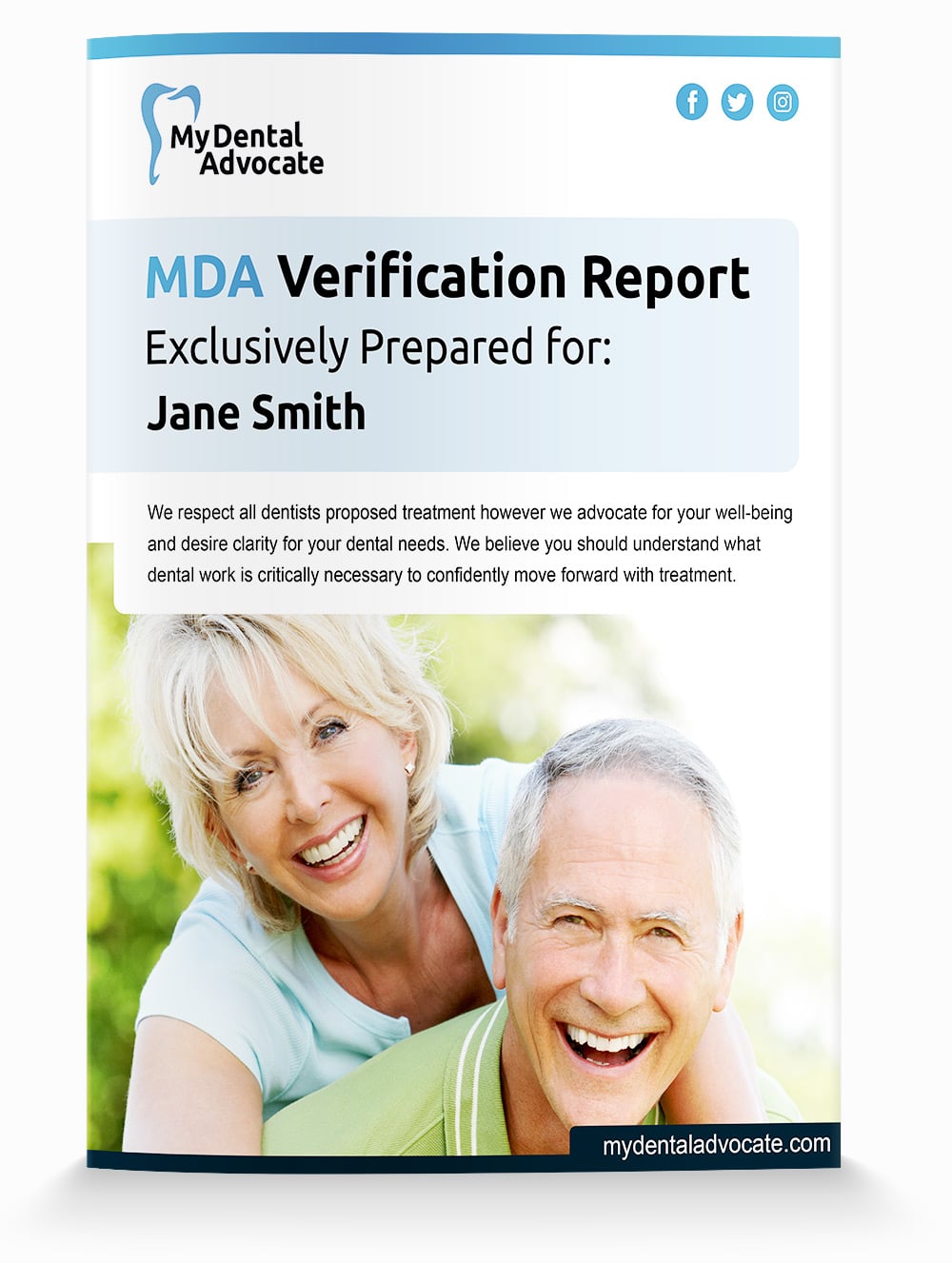
Highlights
- Avoid unnecessary dental treatment
- Potentially save you thousands of dollars
- Information reviewed privately and securely
- Unbiased assessment that brings you peace of mind
- Quick response time to review the report at your convenience
- Clarity and confidence moving forward with dental treatment
- Completed from the comfort of your own home
What’s Involved?
With My Dental Advocate, patients of all ages now have an unbiased, expert second opinion to securely review their proposed dental treatment and gain the knowledge to improve their oral health.
Step 1: Complete Questionnaire
The questionnaire includes a brief medical history, oral hygiene habits, and an opportunity to explain your dental concerns.
Step 2: Upload X-rays
Contact your provider to request your x-rays or take a photo of them at the office. You can also upload dental photos, current treatment plans, periodontal probings, and other supporting documents.
Step 3: Submit Payment
We will privately send your information to a board-certified dentist who will securely assess your case and provide a detailed second opinion for your proposed dental work.
Step 4: Receive MDA Verification Report
We will email your MDA Verification Report second opinion within hours for review at your convenience and from the comfort of your home.
Frequently Asked Questions (FAQ)
My Experience & Expertise
Navigating dental health can be tricky, but knowing about misdiagnosis helps you stay on the right track. Remember, technology and asking questions are your best friends in getting the care you need.
If something feels off, it’s okay to ask for a second opinion. Your mouth’s health is too important to leave to guesswork. Stay informed, communicate openly with your dentist, and don’t shy away from seeking clarity.
Need a second opinion? We can help! Learn more. Knowledge is power when cultivating healthy dental habits. The more informed you are, the better positioned you’ll be to prevent avoidable and potentially costly dental procedures for you and your family. Watch for future blog posts, where we’ll continue sharing important information, product reviews and practical advice!

About the Author
Dr. Matthew Hannan, also known as “Dr. Advocate,” is a board-certified dentist on a mission to provide accurate dental patient education. He attended Baylor University before completing dental school at UT Health San Antonio School of Dentistry. He now lives in Arizona with his beautiful wife and 4 kids. Dr. Hannan believes everyone should access easy-to-read dental resources with relevant, up-to-date dental research and insight to improve their oral health.

Connect with Dr. Hannan!
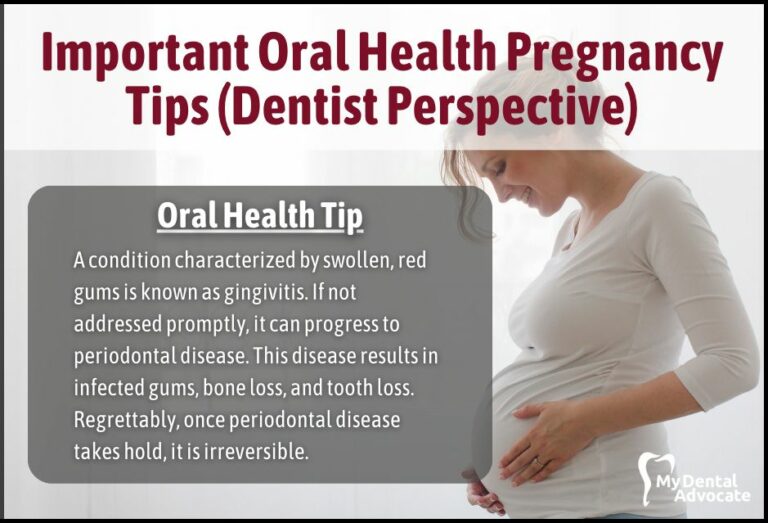
Important Oral Health Pregnancy Tips 2024
Brushing, flossing, and regular dental care are even more important when pregnant. This is because your progesterone hormone levels increase during pregnancy, leaving your gums more prone to plaque accumulation and…

Dr. B Dental Solutions Review 2024 (Dentist Recommended)
Dr. B Dental Solutions was founded by Dr. Lorin Berland, DDS, after hearing the needs of thousands of denture patients. While practicing for 35 years, he realized that dental treatments had improved drastically; however, the products available to care for…

Wisdom Teeth Removal Cost (With & Without Insurance)
Are you worried about the cost of wisdom teeth removal? Wisdom teeth surgery is considered a major dental procedure and necessary for most 15 to 25-year-olds. Expect to spend between $200 and $1,100 per tooth! On top of that…
Gain Clarity with Our FREE Second Opinion Guide
Receive clear, expert second opinions online within 48 hours. Start today!
Product Reviews
Our 250+ dental product reviews (and counting), curated by an experienced dentist, are the most comprehensive online.
Toothbrush Genie
State-of-the-art chatbot designed to help you discover your perfect toothbrush in just a few simple steps!
Cavity Risk Assessment
Cutting-edge digital tool designed to evaluate your individual cavity risk based on your responses to a series of questions.
Gum Disease Assessment
Discover your gum disease risk with our quick and engaging 6-question assessment!
